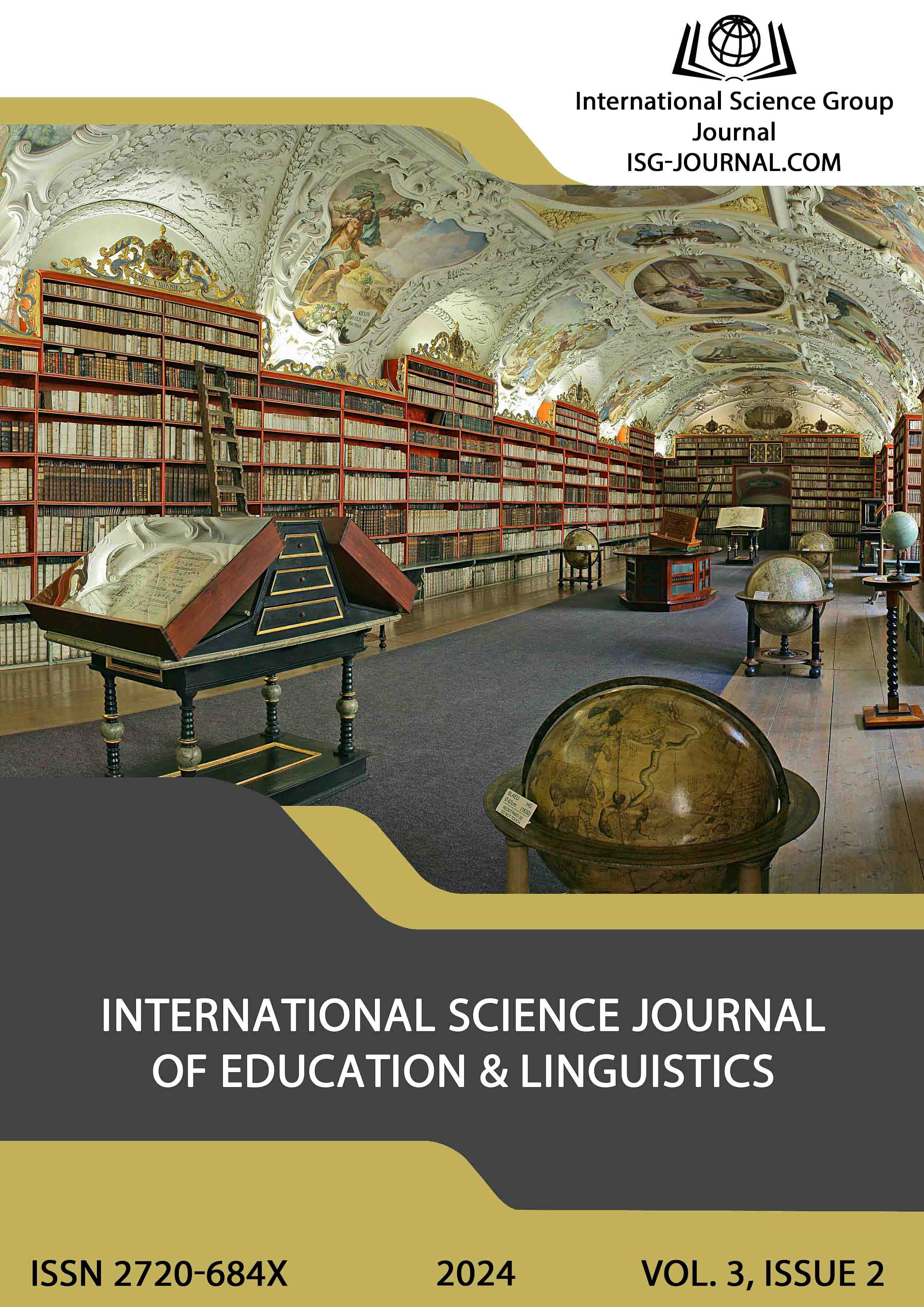Features of teaching English for students majoring in economics
DOI:
https://doi.org/10.46299/j.isjel.20240302.10Keywords:
economists, English for special purposes, ESP, information technology, distance education, lexical approach, professional skillsAbstract
The article is devoted to the actual problem of teaching English for special purposes (ESP) to students of economic specialties. The authors consider the teaching of English for special use in the context of professional skills. It is imperative that students develop these skills to become skilled and successful professionals in any field. The focus of attention of the authors is teaching English for economists with the help of modern information technologies. The presence of a significant number of terms and idiomatic expressions in the English language of the economic sphere makes the lexical approach particularly effective in the formation of foreign language professional competence of future economists. An online Google Forms survey was conducted to determine students’ awareness of various Internet services that can be used to teach English, including those aimed at training and practicing certain language skills. Students had the opportunity to familiarize themselves with a large number of Internet resources. Foreign language teachers use them every day not only for homework, but also for online classes. The most popular platforms and services are identified, including those that form foreign language competence using a lexical approach. English for Special Purposes (ESP) focuses on language learning objectives defined by the domain or genre in which it is being studied. When learning English for science subjects such as physics, chemistry or biology, the objectives are clear and the domain is often clearly defined. The question at the heart of this article on English for Economics is how blurred disciplinary boundaries affect the teaching and practices of English for Special Use.References
Atlas of new professions (2014). http://atlas100.ru/about/
Barcena, E., Timothy, R., & Arus, J. (2014). Languages for Specific Purposes in the Digital Era. Springer International Publishing.
Basturkmen H. (2010). Developing Courses in English for Specific Purposes. Basingstoke: Palgrave Macmillan.
Beatty, K. (2019). Teaching and Researching: Computer-Assisted Language Learning. Longman.
Davies, G., Walker, R., Rendall, H., & Hewer, S. (2011). Introduction to Computer Assisted Language Learning (CALL). Module 1.4. In G. Davies (Ed.), Information and Communications Technology for Language Teachers (ICT4LT). Slough, Thames Valley University [Online]. http://www.ict4lt.org/en/en_mod1-4.htm
Dellar, H., & Walkley, A. (2017). Teaching Lexically: Principles and practice. Delta Publishing
Erben, T., Ban, R., & Castaneda, M. (2008). Teaching English Language Learners through Technology. Routledge.
Kakoulli Constantinou, E. (2018). Teaching in Clouds: Using the G Suite for Education for the Delivery of Two English for Academic Purposes Courses. The Journal of Teaching English for Specific and Academic Purposes, 6(2), 305–317. https://doi.org/
Lewis, M. (1993). The Lexical Approach: The State of ELT and a Way Forward. Language Teaching Publications.
MacGregor, S. K., & Lou, Y. (2004). “Web-Based Learning: How Task Scaffolding and Web Site Design Support Knowledge Acquisition. Journal of Research on Technology in Education, 37(2), 161-175. https://files.eric.ed.gov/fulltext/EJ690967.pdf
Macmillan (2020). Little Book of Business Skills. http://www.businessenglishonline.net/business-2/files/2014/11/Little-Book-of-Business-Skills.pdf
Plutino, A. (2017). Teachers as Awakeners: A Collaborative Approach in Language Learning and Social Media. In C. Álvarez-Mayo, A. Gallagher-Brett, & F. Michel (Eds.), Innovative Language Teaching and Learning at University: Enhancing Employability (pp. 115–25). https://doi.org/
Rosell-Aguilar, F. (2018). Twitter as a Formal and Informal Language Learning Tool : From Potential to Evidence. In F. Rosell-Aguilar, T. Beaven, & M. Fuertes Gutiérrez (Eds.), Innovative Language Teaching and Learning at University: Integrating Informal Learning into Formal Language Education (pp. 99–106). https://research-publishing.net/manuscript?10.14705/rpnet. 2018.22.780
TexTerra (2020). https://texterra.ru/blog/obzor-15-besplatnykh-programm-dlya-sozdaniya-intellekt-kart.html
Whitmell, C. (2014). 505 Business Idioms and Phrasal Verbs. Kindle Edition.
Yate, M. (2017). Knock’em Dead: The Ultimate Job Search Guide. Adams Media
Downloads
Published
How to Cite
Issue
Section
License
Copyright (c) 2024 Alona Protasova, Anastasiia Svoboda

This work is licensed under a Creative Commons Attribution 4.0 International License.





